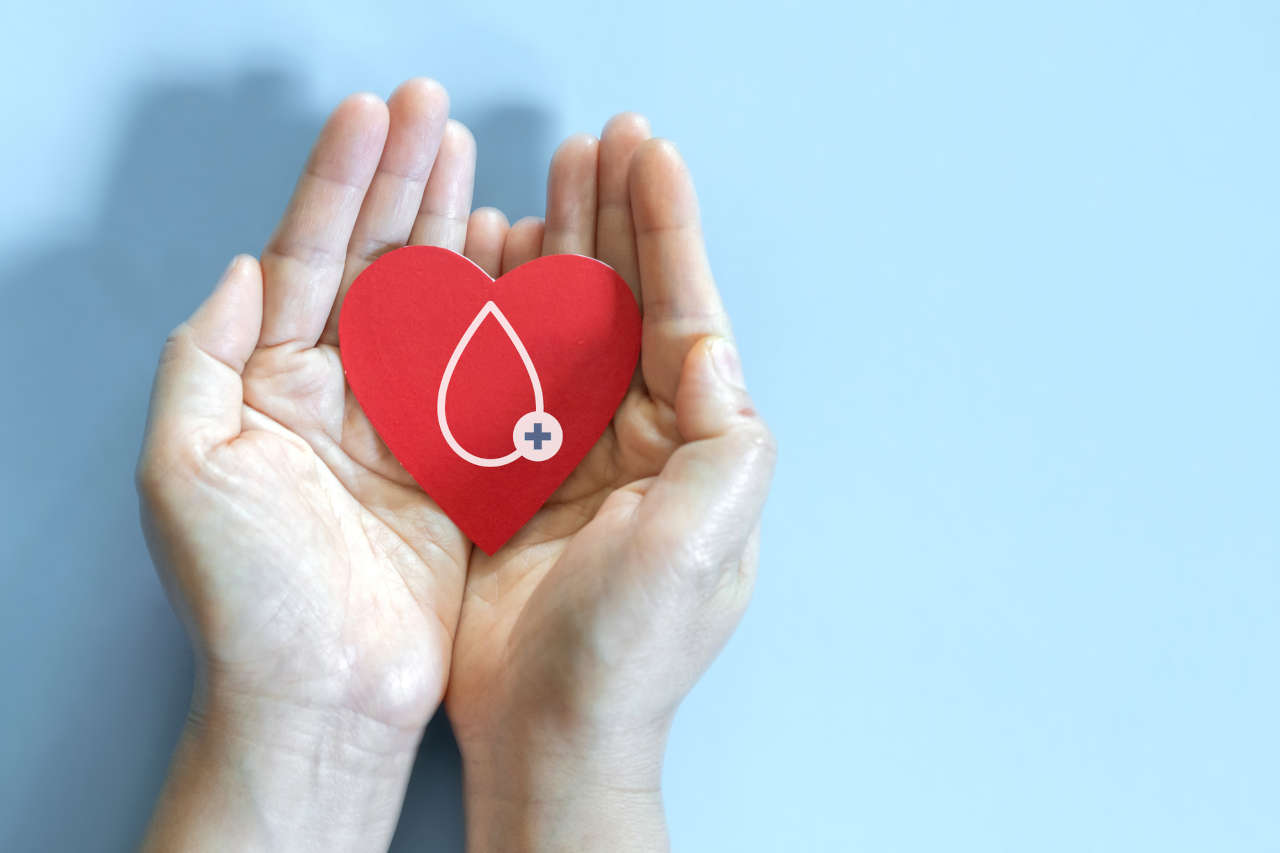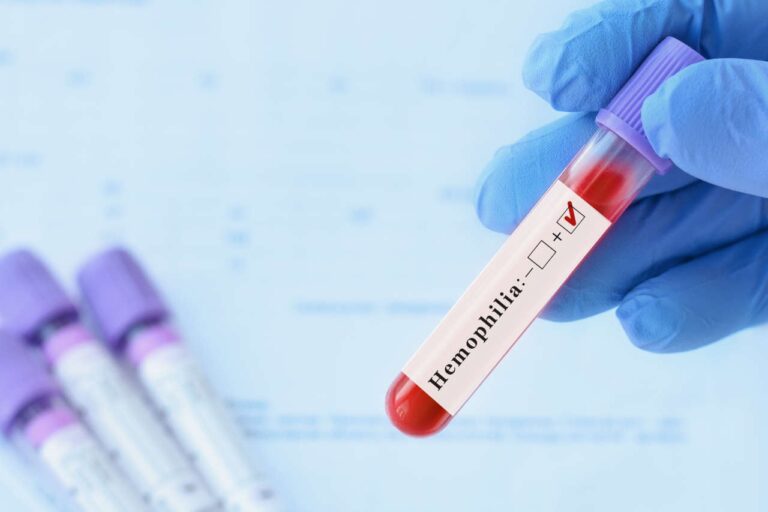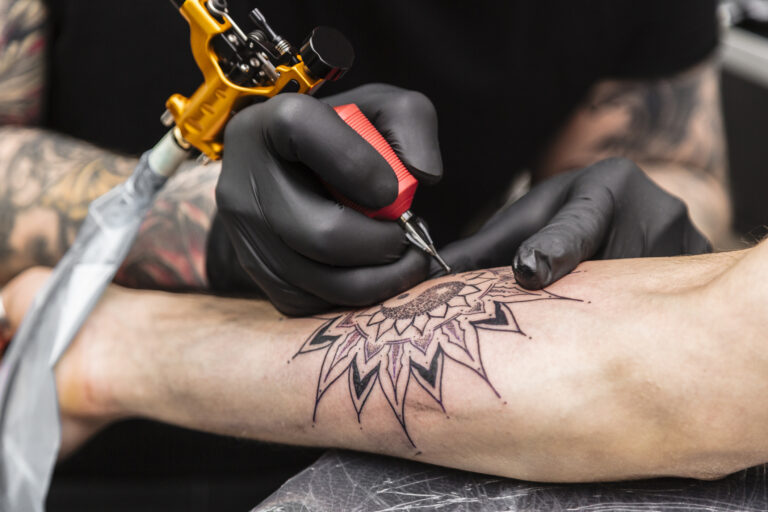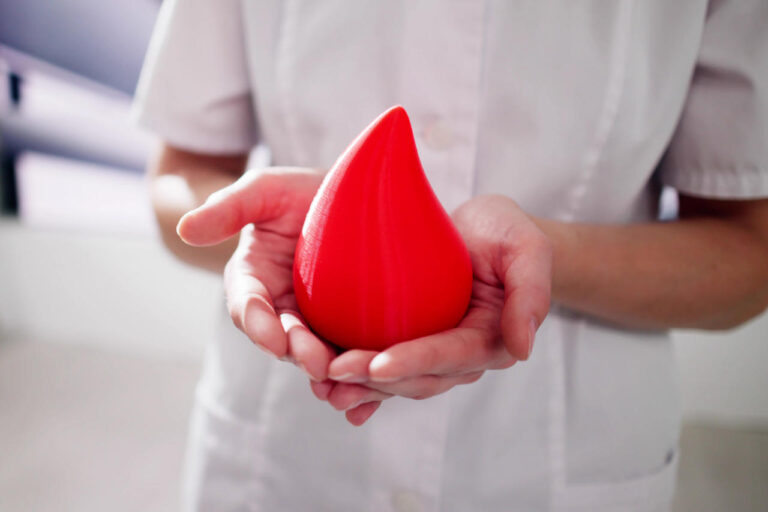
Hemophilia is more common in males due to the fact that they have only one copy of the gene on the X chromosome. If any changes occur in that gene, females can compensate for the defect with an additional copy of the gene, but males cannot.
Zungumza na Mtaalamu Kuhusu Usaidizi wa Copay
It is also the reason why more males get other X-linked disorders like color blindness. X-linked disorders occur due to changes in the gene on the X chromosome.
A Quick Overview of Hemophilia, Causes, Types, and Occurrence
Hemophilia is a genetic disorder in which the blood does not clot as it should. As a result, it can lead to excessive bruising and nosebleeds. Severe hemophilia can cause spontaneous bleeding (bleeding with no obvious cause).
Hemophilia occurs due to changes in the genes that instruct the body to make blood-clotting proteins called clotting factors. The common types are:
- Hemophilia A: Also known as classic hemophilia, it occurs due to having little or no clotting factor VIII.
- Hemophilia B: Also known as Christmas disease, it occurs due to having little or no clotting factor IX.
The more common type—Hemophilia A—affects 1 in 5,000 male live births. According to reports from the Centers for Disease Control and Prevention (CDC), nearly 400 babies are born with this disorder each year in the U.S. Though the exact numbers remain unknown, recent data suggest about 33,000 American males have this condition [1].
Why Hemophilia Is More Common in Males: Understanding the Genetics and Inheritance
The fundamental reason why hemophilia is more common in males is that they have only one X chromosome.
The X chromosome contains the genes for clotting factors VIII and IX. Changes in these genes lead to little or no clotting factor production. Consequently, the blood does not clot properly.
The X chromosome contains the genes for clotting factors VIII and IX. Changes in these genes lead to little or no clotting factor production. Consequently, the blood does not clot properly.
Because males have only one chromosome, one altered copy of the gene is enough to cause symptoms. On the other hand, females have two copies of these genes, and changes in one copy typically do not cause the condition.
Moreover, males get an earlier diagnosis than females. Early diagnosis in males is a result of the myth that females cannot get hemophilia. Many females may even ignore the signs of mild hemophilia, such as heavy bleeding.
According to a 2020 study, females with moderate symptoms receive a diagnosis about 6 months later than males. In severe cases, females face delays of approximately 40 months [2].
Hemophilia is more common in males born to a female carrying the affected gene and an unaffected male. In such cases, there is a 1 in 4 chance of having a baby boy with the condition. On the other hand, males born to a hemophilic father and unaffected mother are less likely to get the condition.
The risk of hemophilia is the same for males and females if both parents have the faulty gene. In such cases, there is a 1 in 4 chance that a baby girl will be a carrier.
Pata Usaidizi wa Kifedha
Why Is Hemophilia Rare in Females?
For females to get hemophilia, both X chromosomes have to be altered. Sometimes, hemophilia may result from having one affected X chromosome and another non-functioning chromosome.
A female with one altered gene is a “carrier.” She can pass the affected gene on to her children. Female carriers do not usually experience symptoms of hemophilia, but some do.
The prevailing misbelief that hemophilia is a “male-only” disease could be one of the reasons for fewer diagnoses in females.
Key Takeaways
- Hemophilia is more common in males because they have only one X chromosome.
- Though some providers consider it a “male-only” disease, hemophilia can affect females as well.
- Many health experts think underrecognition and underdiagnosis in females could obscure the real-world scenario. Females appear to get delayed diagnoses.
MAREJEO:
- “Data and Statistics | Hemophilia | NCBDDD | CDC.” Centers for Disease Control and Prevention, 1 Aug. 2022, www.cdc.gov/ncbddd/hemophilia/data.html.
- Weyand, Angela C, and Paula D James. “Sexism in the management of bleeding disorders.” Research and practice in thrombosis and haemostasis vol. 5,1 51-54. 13 Dec. 2020, doi:10.1002/rth2.12468













